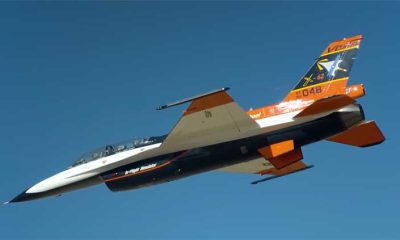Tech
US Senator Rubio seeks review of Ford technology deal with China’s CATL

Tech
WhatsApp to launch file sharing feature without internet
WhatsApp to launch file sharing feature without internet
Tech
Flame-throwing robotic dog unleashed for sale in US
Flame-throwing robotic dog unleashed for sale in US
Tech
US military stage world’s first ever AI controlled warplane
US military stage world’s first ever AI controlled warplane
-

 Fashion3 months ago
Fashion3 months agoAmi updates bourgeois styles for fall runway show at Paris Fashion Week
-

 Sports3 months ago
Sports3 months agoSon and Bissouma ready for Spurs game with Brighton
-

 Sports3 months ago
Sports3 months agoSinisterra signs long-term deal with Bournemouth
-

 Fashion2 months ago
Fashion2 months agoGiorgio Armani catwalk blooms with florals at Milan Fashion Week
-

 pakistan3 months ago
pakistan3 months agoECP convenes emergency meeting today
-

 World3 months ago
World3 months agoNorth Korea tests underwater nuclear drone, criticises US-led joint drills
-

 pakistan3 months ago
pakistan3 months agoECP rejects Salman Akram’s plea for PTI affiliation
-

 Tech3 months ago
Tech3 months agoBMW is testing humanoid robot to automate manufacturing tasks























